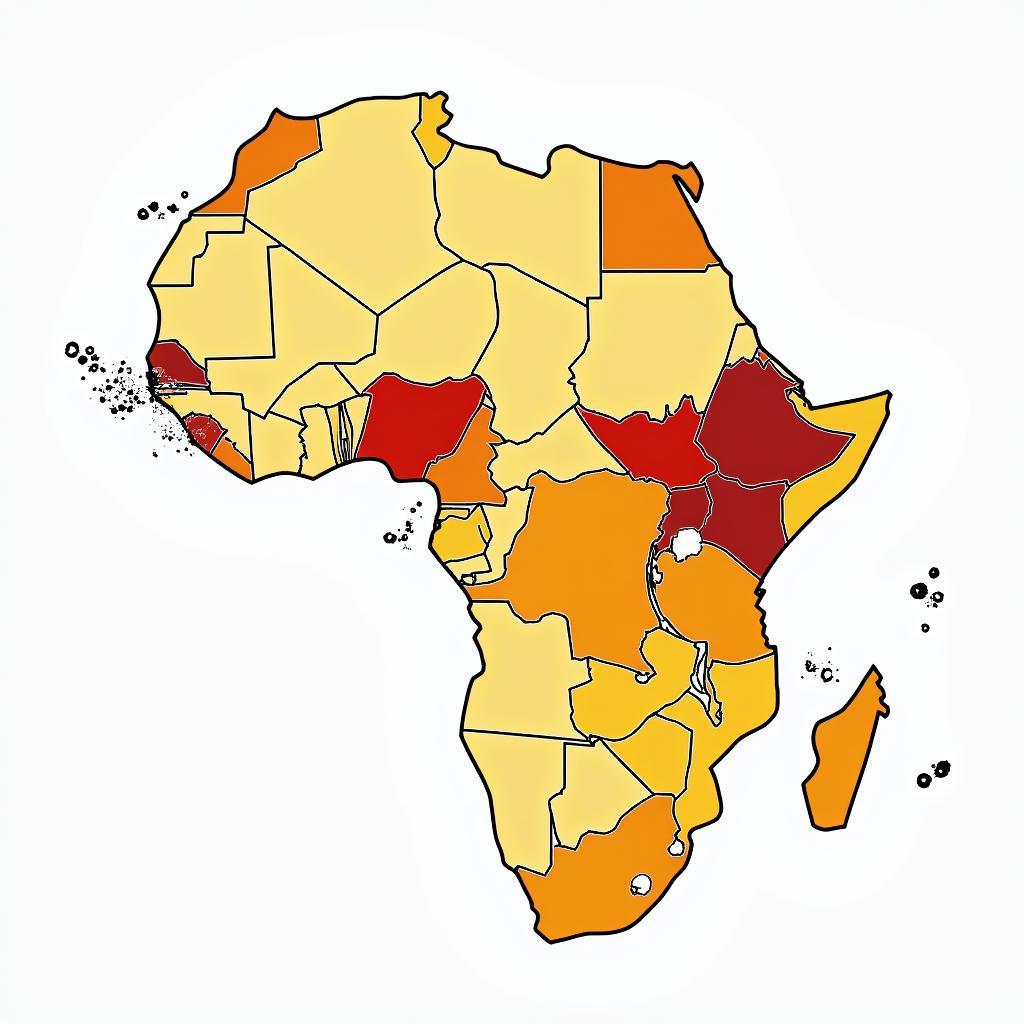The Fascinating World of African Indian Names
African Indian Names are a fascinating blend of cultures, reflecting the historical connections and vibrant diversity of these two continents. These names carry rich meanings and stories that offer a glimpse into the history, beliefs, and traditions of both African and Indian cultures.
Origins of African Indian Names
The emergence of African Indian names is rooted in the historical exchanges between Africa and India. From the ancient trade routes to the more recent waves of migration, these two regions have shared cultural influences that are evident in the naming practices.
African Influences
Many African Indian names have origins in the diverse languages and cultures of Africa. These names often reflect the natural world, with references to animals, plants, and geographical features. For example, the name “Aisha” is of Arabic origin, but widely used in many African countries.
Indian Influences
Indian influences on African Indian names are equally prominent. Names derived from Sanskrit, Hindi, and other Indian languages are frequently used in African Indian communities. These names often carry significant meanings related to religion, mythology, and social values. For instance, the name “Sita” is derived from the Hindu epic Ramayana, symbolizing purity and devotion.
The Significance of Names
Names hold immense cultural and personal significance in African Indian communities. They serve as a link to heritage, identity, and family history. Choosing the right name for a child is a thoughtful and meaningful process, often involving consultations with elders and consideration of family traditions.
Cultural Identity
Names can be a powerful tool for asserting cultural identity. By choosing names with African or Indian roots, individuals express their connection to these rich cultural heritages. These names serve as a reminder of the shared history and enduring cultural ties between these two continents.
Meaning and Symbolism
African Indian names often carry deep meanings and symbolism. They can represent virtues, aspirations, or beliefs held dear by the family. For example, the name “Nkosi” in Zulu means “lord” or “king,” reflecting the importance of leadership and respect in African culture.
Heritage and Lineage
Names often carry a sense of heritage and lineage, connecting individuals to their ancestors and family traditions. Passing down names across generations helps preserve family history and cultural identity. In many African Indian families, children are named after grandparents or other important figures in their lineage.
Popular African Indian Names
There are numerous beautiful and meaningful African Indian names. Here are a few examples:
For Boys:
- Asim: A name of Arabic origin, meaning “protector.”
- Nkosi: A Zulu name meaning “lord” or “king.”
- Raj: A Hindi name meaning “king” or “prince.”
- Aditya: A Sanskrit name meaning “sun.”
For Girls:
- Aisha: An Arabic name meaning “alive” or “living.”
- Nala: A name of Indian origin, meaning “lotus flower.”
- Sita: A Sanskrit name, derived from the Hindu epic Ramayana, symbolizing purity and devotion.
- Zuri: A Swahili name meaning “beautiful.”
Choosing the Right Name
Choosing a name for your child is a personal and meaningful decision. Consider factors such as:
- Family History: Are there any traditional names passed down through your family?
- Cultural Significance: Do you want a name with African or Indian roots?
- Meaning and Symbolism: What values or beliefs are important to you?
- Personal Preference: Ultimately, choose a name that you love and that resonates with you.
African Indian Naming Traditions
African Indian naming traditions vary across different communities and regions. However, some common practices include:
- Naming ceremonies: Many cultures hold special ceremonies to officially name a newborn child. These ceremonies often involve prayers, blessings, and the sharing of cultural traditions.
- Family elders’ involvement: Family elders play a significant role in choosing a name for a child. Their wisdom and experience are valued, and their approval is often sought.
- Meaningful pronouncements: Names are often chosen for their meaningful pronouncements, reflecting the hopes and aspirations for the child’s future.
FAQs
Q: What is the difference between African and Indian names?
A: While both types of names have rich traditions and symbolism, they are rooted in distinct cultural contexts. African names often draw from local languages, reflecting the diversity of the continent’s cultures. Indian names often have Sanskrit or Hindi origins, and are often associated with religious and mythological figures.
Q: Are there any specific names that are considered traditional in both African and Indian cultures?
A: Some names like “Aisha” and “Raj” are prevalent in both African and Indian communities due to shared cultural influences. However, it’s important to remember that every name carries specific meanings and historical contexts within its respective culture.
Q: Is it important to choose a name from a particular culture?
A: Ultimately, the decision to choose an African, Indian, or any other type of name is a personal one. It’s important to select a name that resonates with you, aligns with your family’s values, and honors your cultural heritage.
Q: Can I use a name from a different culture if I’m not from that culture?
A: Choosing a name from a different culture can be a beautiful way to celebrate diversity and connect with other traditions. However, it’s important to approach this with sensitivity and respect. Do thorough research to understand the meaning and significance of the name in its original cultural context.
Conclusion
African Indian names represent a fascinating intersection of cultures, history, and tradition. These names carry rich meanings and symbolism, offering a glimpse into the vibrant tapestry of African and Indian societies. Whether you’re looking to explore your own heritage or simply appreciate the beauty of these unique names, the world of African Indian names is sure to inspire and fascinate.

